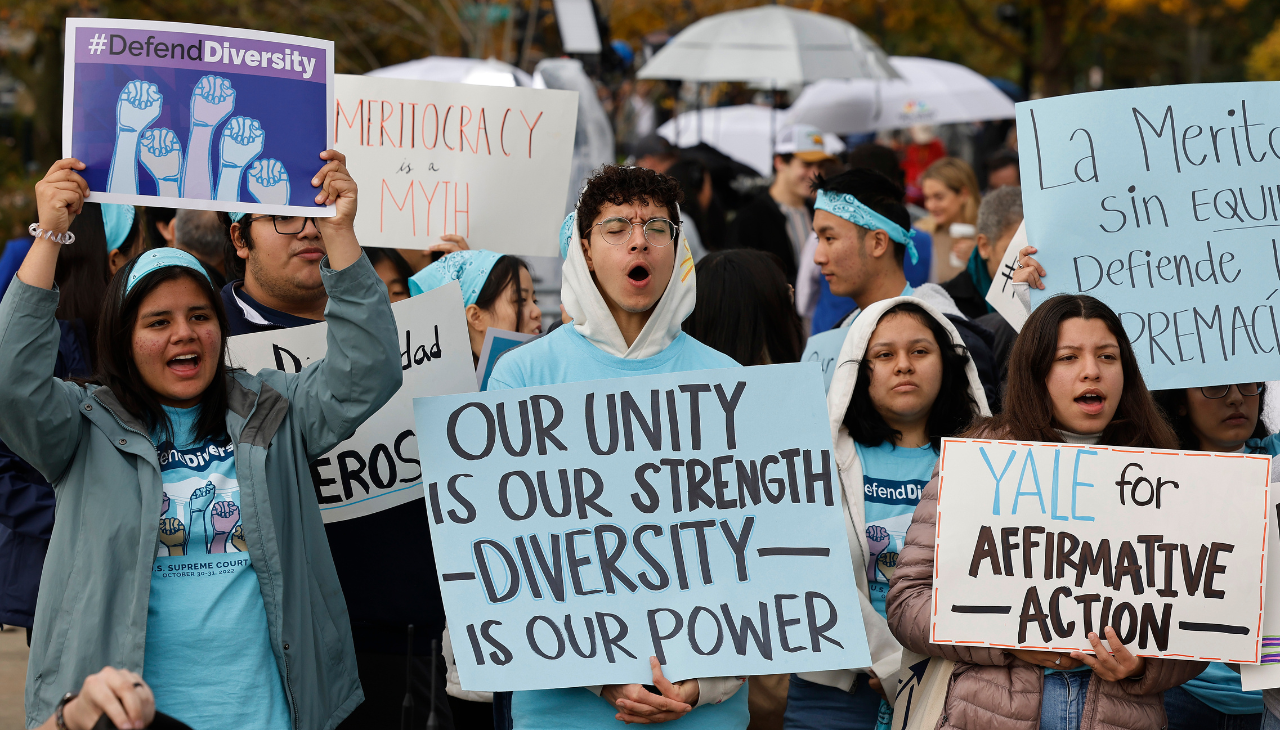
Legacy admissions at Harvard challenged by civil rights group following Affirmative Action ruling
Following the U.S. Supreme Court’s Affirmative Action decision last week that ruled colleges and universities can no longer take race into account as a specific basis for allowing admission, a civil rights group is challenging legacy admissions at Harvard University, saying it discriminates against students of color by giving an unfair boost to the mostly white children of alumni.
Lawyers for Civil Rights, a nonprofit based in Boston, filed the civil rights complaint Monday July 3 on behalf of Black and Latino community groups in New England, alleging that Harvard’s admissions system violates the Civil Rights Act.
“Why are we rewarding children for privileges and advantages accrued by prior generations?” said Ivan Espinoza-Madrigal, the group’s executive director. “Your family’s last name and the size of your bank account are not a measure of merit, and should have no bearing on the college admissions process.”
The complaint was filed on behalf of Chica Project, African Community Economic Development of New England, and the Greater Boston Latino Network.
“A spot given to a legacy or donor-related applicant is a spot that becomes unavailable to an applicant who meets the admissions criteria based purely on his or her own merit,” according to the complaint. If legacy and donor preferences were removed, it adds, “more students of color would be admitted to Harvard.”
Submitted with the Education Department’s Office for Civil Rights, the new complaint stems from Harvard data that recently resurfaced during the court’s affirmative action case.
According to the data, 70% of Harvard’s donor-related and legacy applicants are white, and being a legacy student makes an applicant about six times more likely to be accepted into the school.
Roughly 28% of Harvard's class of 2019 were legacies, the groups said in the complaint, which leaves fewer admissions slots available for non-white applicants who are far less likely to have family ties to the school, they said.
“Because Harvard only admits a certain number of students each year, a spot given to a legacy or donor-related applicant is a spot that becomes unavailable to an applicant who meets the admissions criteria based purely on his or her own merit; college admissions are zero sum,’ as the Supreme Court recently emphasized,” the Lawyers for Civil Rights wrote in their complaint.
The complaint also brings attention to other colleges that have abandoned the legacy admissions practice, including Amherst College and Johns Hopkins University.
According to the complaint, Harvard’s legacy preference allegedly has nothing to do with merit and takes away opportunities from qualified students of color.
CONTENIDO RELACIONADO
The group asks the U.S. Education Department in the complaint to declare the practice illegal and force Harvard to no longer use it as long as the university receives federal funding.
Harvard said it would not comment on the complaint.
“Last week, the University reaffirmed its commitment to the fundamental principle that deep and transformative teaching, learning, and research depend upon a community comprising people of many backgrounds, perspectives, and lived experiences,” the university said in a prepared statement. “As we said, in the weeks and months ahead, the University will determine how to preserve our essential values, consistent with the Court’s new precedent.”
For supporters of the policy, legacy admissions builds an alumni community and encourages donations. Opponents say the practice is not acceptable unless affirmative action is present to provide a counterbalance.
While the Supreme Court’s ruling says colleges must ignore the race of applicants, activists say schools can still give a boost to the children of alumni and donors.
An initiative being led by Ed Mobilizer, which targets Harvard and other Ivy League schools, is calling on the alumni of 30 prestigious colleges to withhold donations until their schools end legacy admissions.
President Joe Biden said last week that legacy admissions “expand privilege instead of opportunity.”










DEJE UN COMENTARIO: